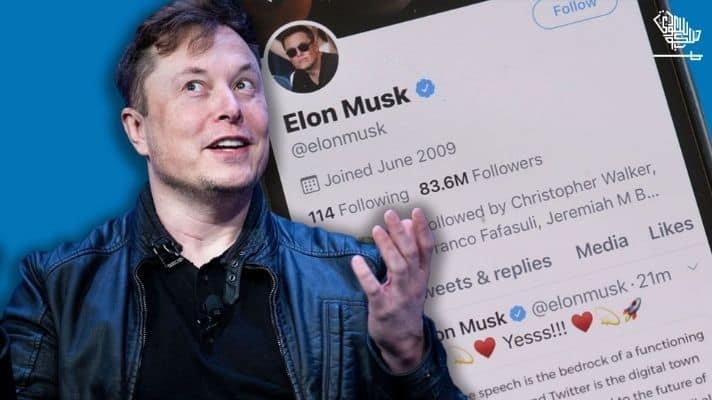Elon Musk has 83 Million Twitter Followers
Elon Musk doesn’t have all the answers to Twitter’s problems, the biggest of which is how to moderate speech content on the service.
Twitter and other social networks have struggled to police content such as misinformation, hate speech, and harassment for years.
Activists say the social media platforms aren’t doing enough to crack down on offending posts. At the same time, Conservatives accuse Twitter of censoring their speech. Twitter has denied the allegation.
Users are unhappy with how Twitter decides what gets taken down and what is left up.
Musk, the world’s richest person, has now thrust himself into the center of the debate. The Tesla and SpaceX CEO has struck a $44 billion deal to buy Twitter, which he plans to take private.
Musk indicated he wants looser content moderation for the platform, a change that would have an outsized influence on politics and society.
The deal has caused concerns among employees and advocacy groups about whether the serial entrepreneur might undo Twitter’s struggle to battle harmful content.
Such as COVID-19 disinformation. It has also asked if Twitter could welcome back Twitter users the company has banned.
Last year, the social network famously banned ex-President Donald Trump after the January 6 insurrection because of worries his comments could provoke violence. Trump has announced he’s not returning to Twitter.
The First Amendment protects Free speech and safeguards citizens from government interference. Still, that amendment to the US Constitution doesn’t apply to companies like Twitter, which can set rules for moderating content.
Content moderation is a fine practice, something Musk understands very well. In 2020, Musk incorrectly tweeted that “kids are essentially immune” from COVID-19.
Children can catch the virus and experience the same effects, though at a lower rate than adults. Twitter told Axios the tweet did not violate its rules against harmful coronavirus misinformation because it wasn’t “definitive.”
In a plain Twitter message, Katie Harbath, a former public policy director at Facebook who now leads consultancy Anchor Change, said that she doesn’t expect significant changes right away at Twitter. Over time, however, Harbath said, Musk could assign fewer resources to content moderation.
Musk will likely be more active in decision-making than Twitter co-founder Jack Dorsey was.
A Twitter spokeswoman did not comment beyond earlier statements the company has made. Twitter has no plans to change past policy decisions, saying its employees and managers make the day-to-day decisions.
Still, advocacy groups are expressing alarm about the deal.
In a statement, Jonathan Greenblatt, CEO of the Anti-Defamation League, said that Musk hasn’t focused on tackling extremism and hate speech.
“Twitter, as a private company, will lack the accountability and transparency of a public firm.”
Mariana Ruiz Firmat, executive director of racial justice group Kairos, said Musk will roll back content moderation under the guise of “free speech.”
The deal, she said, “is alarming to the employees, advocates, and users who have fought for years to push the company to adopt appropriate safety and disinformation guidelines.”
Musk’s Views on Content Moderation
Musk, who once described himself as a “free speech absolutist,” has publicly shared his thoughts about content moderation.
On April 14, Musk said in a TED Talk in Canada that Twitter should let users know when a piece of content gets promoted and demoted on the site. Free speech, in his opinion, means someone is allowed to say something on Twitter another person doesn’t like.
Musk said. “Time-outs, I think, are better.”
But taking down speech is only a part of content moderation. Leaving up harassment or hate speech could have a “chilling effect” in which users, especially minorities and women, don’t feel comfortable speaking on Twitter, said Emma Llansó, the free expression project director at the Center for Democracy Technology.
While opening up Twitter’s algorithm could make the social network more transparent, spammers and bad actors could also use that information to abuse the system, so their tweets get promoted higher on the timeline.
“Every decision like this ends up having those kinds of tradeoffs in content moderation,” Llansó said.
“It’s where taking the time to think it through carefully and understand both the intended and unintended consequences of a big move will be important.”
DISCLAIMER: The images/videos/logos showcased on this page are the property of their respective owners. We provide credit and sources wherever possible. However, If you find that your image/video is displayed on this blog without authorization, please contact us with the relevant details and a link to the image, and we will promptly address your concerns.

Faisal Malik is an accomplished author and the Chief Editor at Saudi Scoop. With a passion for delivering insightful and engaging content, he leads the editorial team, covering diverse topics that resonate with readers. His expertise in journalism and storytelling ensures high-quality, well-researched articles that inform and inspire.




